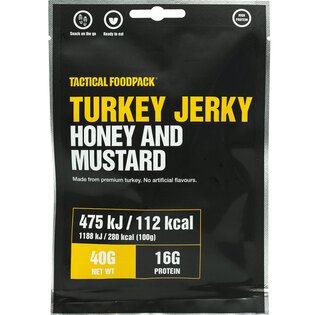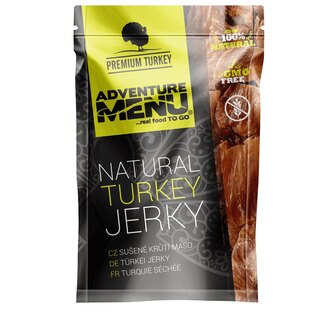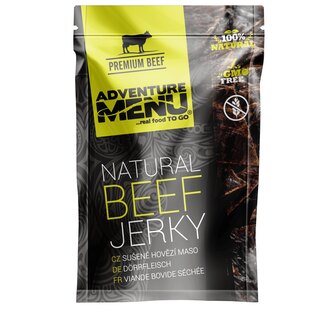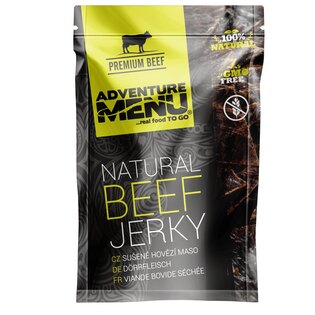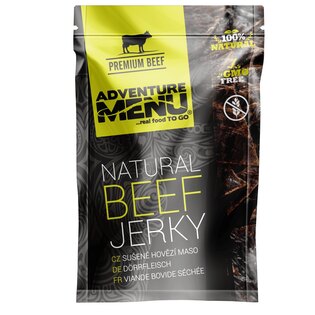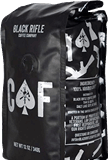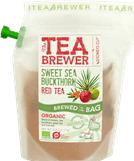The word jerky comes from the Quechuan ch'arki and simply means dried and salted meat. The English transcription of this word has become common in recent years even in our country, just like the food it denotes. It is an excellent source of protein, especially for travel.
Jerky or dried meat is simply a product that consists almost exclusively of dried, lean meat that has been defatted, cut into strips, and then dried. This makes it less prone to spoilage. Another advantage that prolongs the shelf life of jerky and allows it to be carried even in higher temperatures is thorough salting. It is the salt, which is usually the only added ingredient, that inhibits the proliferation of microorganisms in the meat.
Besides this, dried meat can be marinated in other spices, or a mixture of several types, which give the final product a slightly different taste. For example, it might be chili; spicy jerky is simply popular these days. Jerky from some manufacturers can also be ground – this is not a defect but a feature. Spices are added to the ground meat, and the resulting mass is compressed and formed into strips.
Dried meat lasts for months without needing to be frozen or kept in any special environment. Another benefit is that it is available anytime and anywhere without any preparation, so you can pack it in your backpack and eat it on the go in nature to ensure a quick energy boost.
Jerky is most often made from livestock meat, such as beef and pork, but sometimes manufacturers experiment and bring such specialties to the market as fish, kangaroo, or crocodile jerky. Simply put, any meat that can be dried is suitable for making jerky.
Typically, dried meat contains about 10-15 % of proteins, but there are exceptions with several times higher protein content. However, in an extreme case—if you were to survive for days or weeks solely on dried meat—it could cause so-called protein poisoning. Therefore, although jerky is a quick and effective source of energy, it is also essential to think about a balanced and varied diet even on the go.
Practically every type of jerky contains salt, which means an increased sodium content. In 30 grams of dried meat, there are about 600 mg of sodium, which is roughly 30 % of the recommended daily allowance for an adult, which should not be exceeded. The modern person already has an excess of salt, or rather sodium, from other foods throughout the day. Soups, stews, sweets, pastries, cakes… salt is added to all these products today to make them more appealing to people. However, excess salt increases blood pressure and has other negative impacts on the human body. So, as with anything else, the rule is that too much of anything is harmful.






































































































































